Moldova country profile
- Published
This page is no longer being updated. It was last updated on 4 November 2024
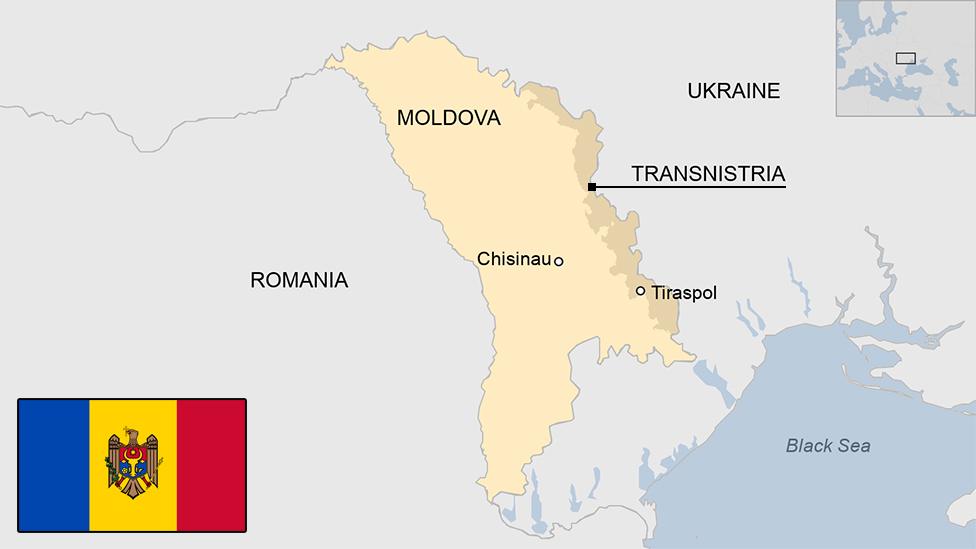
Moldova - a landlocked country bordering Ukraine and Romania - emerged as an independent republic following the collapse of the Soviet Union in 1991.
It is one of Europe's poorest countries, with its economy relying heavily on agriculture. Two-thirds of Moldovans are of Romanian descent, and the two countries share a common cultural heritage.
The industrialised territory to the east of the Dniester, generally known as Transnistria or the Dniester region, was formally an autonomous area within Ukraine before 1940, when the Soviet Union combined it with Bessarabia to form the Moldavian Soviet Socialist Republic.
This area is mainly inhabited by Russian and Ukrainian speakers. As people there became concerned at the prospect of closer ties with Romania in final years of the Soviet Union, Transnistria unilaterally declared independence in 1990.
Since Russia's 2022 invasion of Ukraine, Moldova's pro-Western and pro-Russian factions have become increasingly divided.
In 2023-24 the US and then the EU sanctioned several pro-Russian politicians for collusion with Russia amid attempts to destabilise Moldova.
In 2024, voters narrowly backed proposed changes to its constitution and a commitment to joining the EU and also re-elected President Maia Sandu in a tense election seen as a choice between Europe and Russia..
Read more country profiles, external - Profiles by BBC Monitoring, external
REPUBLIC OF MOLDOVA: FACTS
Capital: Chisinau
Area: 33,851 sq km
Population: 2.4 million
Languages: Romanian, also Bulgarian, Gagauz, Russian, Ukrainian
Life expectancy: 67 years (men) 76 years (women)
LEADERS
President: Maia Sandu
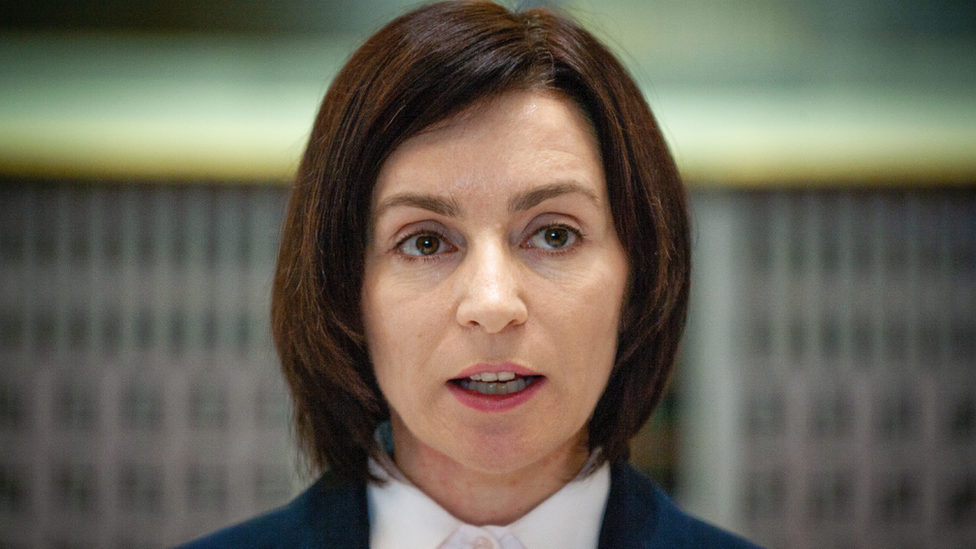
Maia Sandu was re-elected in November 2024 in a second round run-off, with some 55% of the vote. Her rival Alexandr Stoianoglo, backed by the pro-Russian Party of Socialists, had called for a closer relationship with Moscow.
Sandu's president's national security adviser said there had been "massive interference" from Russia in Moldova's electoral process that had "high potential to distort the outcome".
Russia denied meddling in the vote, which came a week after another key Eastern European election in Georgia, whose president said it had been a "Russian special operation".
Stoianoglo, who was fired as prosecutor general by Sandu, denied being pro-Kremlin.
When she was first elected in 2020, Sandu vowed to balance ties with the West and Russia, but since Russia's 2022 invasion of Ukraine she has accused Moscow of interfering in Moldova's politics.
Prime Minister Dorin Recean
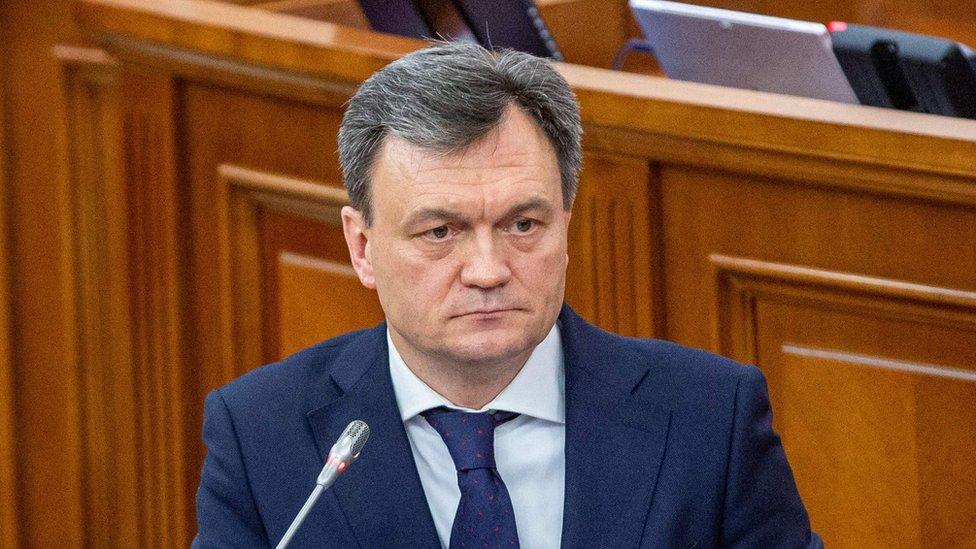
Dorin Recean became prime minster after the resignation of Natalia Gavrilita in February 2023, having headed the government since the 2021 parliamentary election when the pro-European Party of Action and Solidarity (PAS) ousted a pro-Russian coalition.
Shortly after his nomination as prime minster, Recean named his three top priorities. "The first is discipline in government departments which must serve citizens and businesses. There is resistance to this, but we will overcome it.
"The second is breathing new life in the economy as soon as possible. This means finding more resources for investment in small and medium-size companies for them to create jobs, pay higher wages and work for our prosperity.
"The third is peace and prosperity. We must realise that we are facing the gravest threats and challenges since World War Two. We must strengthen the security sector for everyone to feel safe."
Asked to share his vision of Moldova's relations with Russia, Recean said: "The Russian Federation must stop the war in Ukraine. It must withdraw its troops from Ukraine. It must withdraw its troops from Moldova. Only then shall we have topics for discussion."
MEDIA
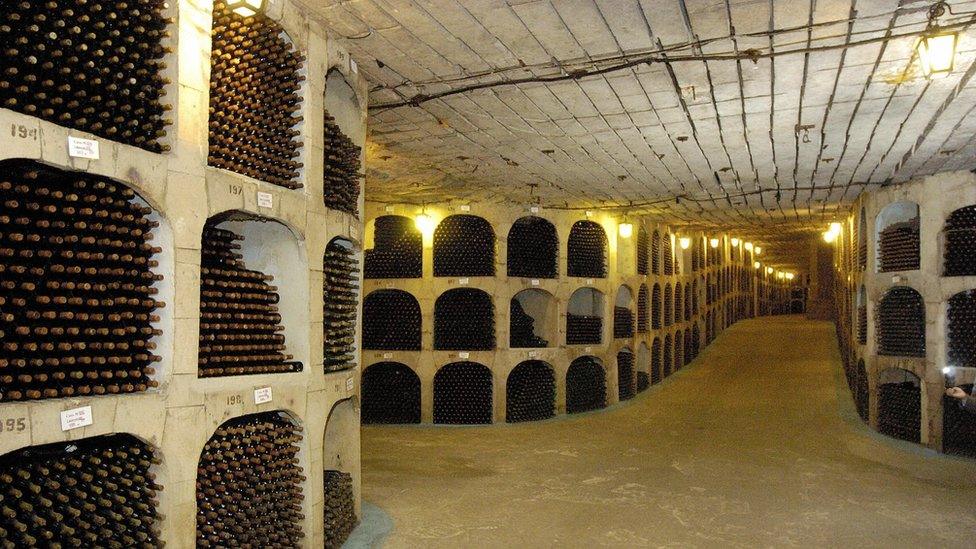
Wine is Moldova's most important export
The media have changed profoundly since the 2021 parliamentary election, which brought to power a pro-European government.
The government has made it easier for journalists to access to official information, contributing to Moldova's rise in the Reporters Without Borders media freedom ranking.
The government sees disinformation and propaganda as key challenges, as Russia continues efforts to disrupt Moldova's European integration, retain its influence and promote parties and figures that favour close ties with Moscow.
Moldova has prohibited rebroadcasts of Russian TV news and political shows, suspended popular pro-Russian TV channels and blocked access to more than 70 Russian and pro-Russian websites.
Political battles between pro-Russia and pro-West camps are played out in the media.
TIMELINE
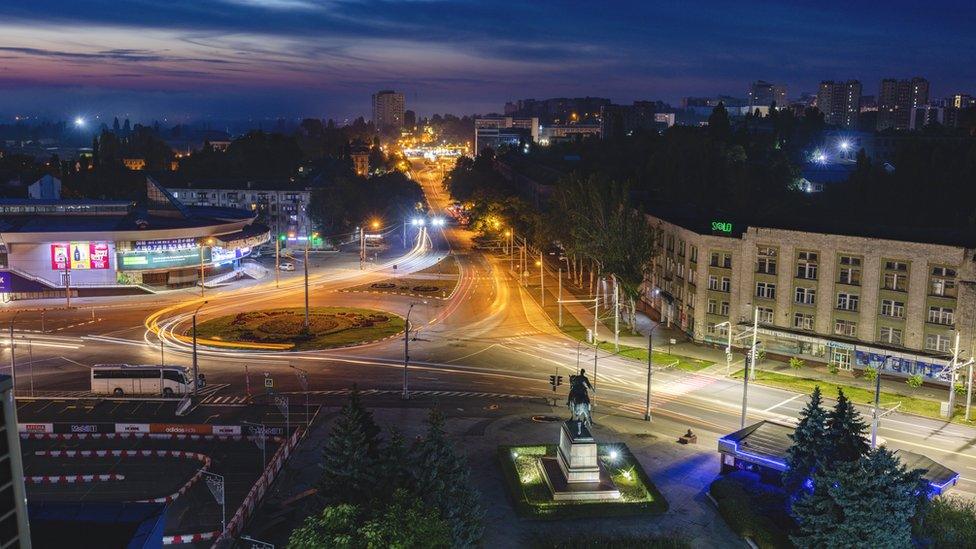
Moldova's capital, Chisinau, at dusk
Some key dates in the history of Moldova:
14th-15th Centuries - Principality of Moldova stretches roughly between Carpathian mountains and Dniester river.
16th-early 19th Centuries - Moldovan territory disputed by several powers with the Ottoman Empire and Russia as the main rivals.
1812 - Treaty of Bucharest grants Russia control of eastern Moldova or Bessarabia, the area between the River Prut and the west bank of the Dniester. The Ottoman Empire gains control of western Moldova.
1878 - Ottomans recognise independence of Romanian state including western Moldova.
1918 - Following the Bolshevik revolution in Russia, Bessarabia declares independence and calls for union with Romania.
1920 - Treaty of Paris recognises union of Bessarabia with Romania. The Soviet Union does not.
1924 - Moldovan Autonomous Soviet Socialist Republic established east of the Dniester River within Ukraine.
1940 - Russia annexes Bessarabia from Romania, and combines it with most of the Moldovan Autonomous Soviet Socialist Republic to form Moldavian Soviet Socialist Republic.
1941-1945 - Romania re-establishes control after its ally Nazi Germany invades the Soviet Union until the end of World War Two, when the Soviet Union regains control.
Late 1980s - Calls for Moldovan independence gain ground in the wake of the Gorbachev reforms in the Soviet Union.
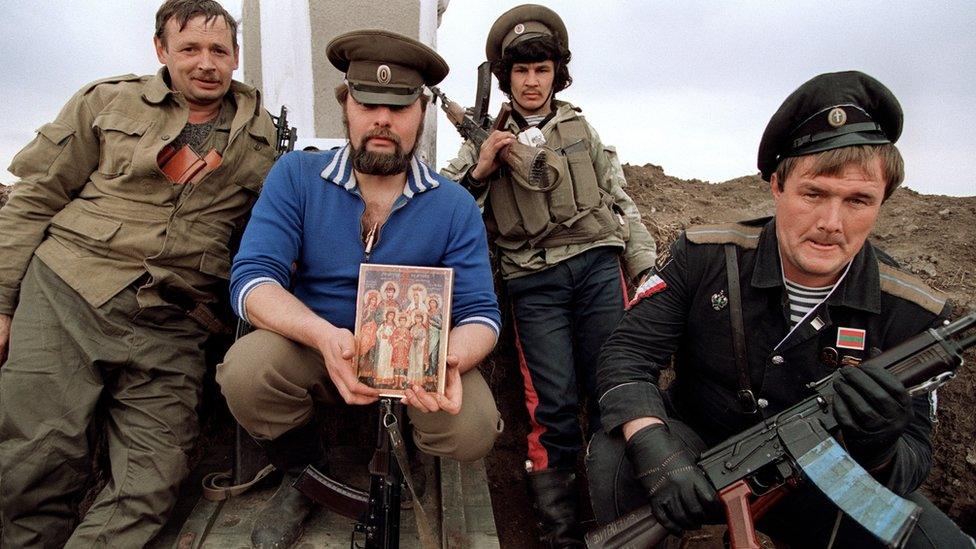
The mainly Russian-speaking Transnistria region declared independence from Moldova in 1990, sparking a conflict in which hundreds died
1991 - Moldova declares independence. It joins the Commonwealth of Independent States, the successor to the Soviet Union.
Up to 700 people are killed in fighting between Moldovan and Transnistrian forces following the breakaway region's unilateral declaration of independence.
1992 - Ceasefire signed and enforced by Russian troops already stationed in the breakaway region.
1994 - Moldova becomes a parliamentary republic.
2001-09 - Communist party returns to power in Moldova.
2006 - Transnistria referendum overwhelmingly backs independence from Moldova and a plan eventually to become part of Russia.
2009 - Three killed amid violent protests in Chisinau, following April elections which protesters claim the governing Communists rigged. In the subsequent July elections the Communists lose power.
2014 - Moldova signs association agreement with the European Union, prompting Russia to impose import restrictions on the country's agricultural produce.
2016 - Pro-Russian candidate Igor Dodon wins first direct presidential election in 16 years.
2020 - Pro-European Maia Sandu is elected Moldova's first women president.
2021- In parliamentary elections, Sandu's pro-European PAS party wins a majority, defeating a coalition of pro-Russian parties.
2023-24 - US and EU impose sanctions against several pro-Russian politicians for collusion with Russia amid attempts to destabilise Moldova.
2024 - Voters narrowly back proposed changes to the constitution and commitment to joining the EU. Maia Sandu is re-elected president.
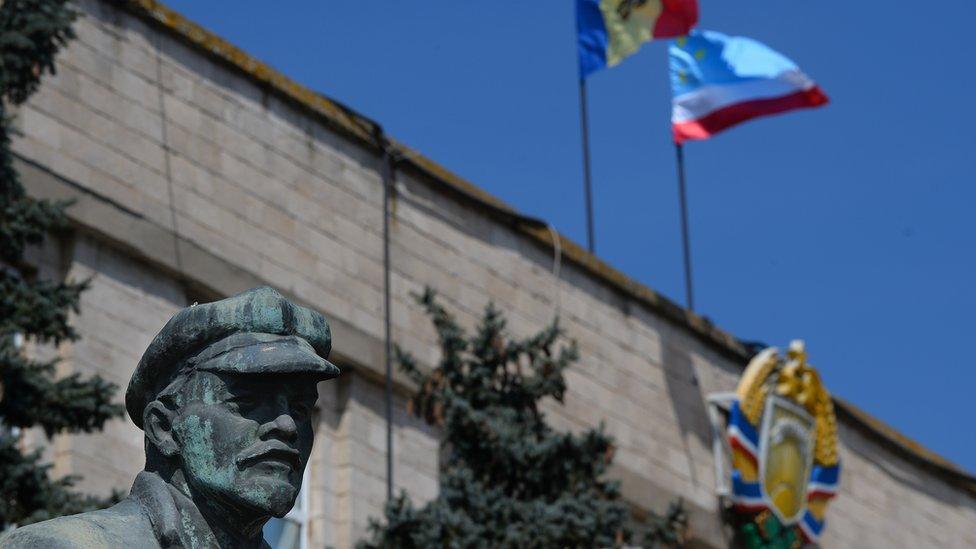
Moldova includes the autonomous region of Gagauzia, where nostalgia for the Soviet Union has been evident
- Published20 January
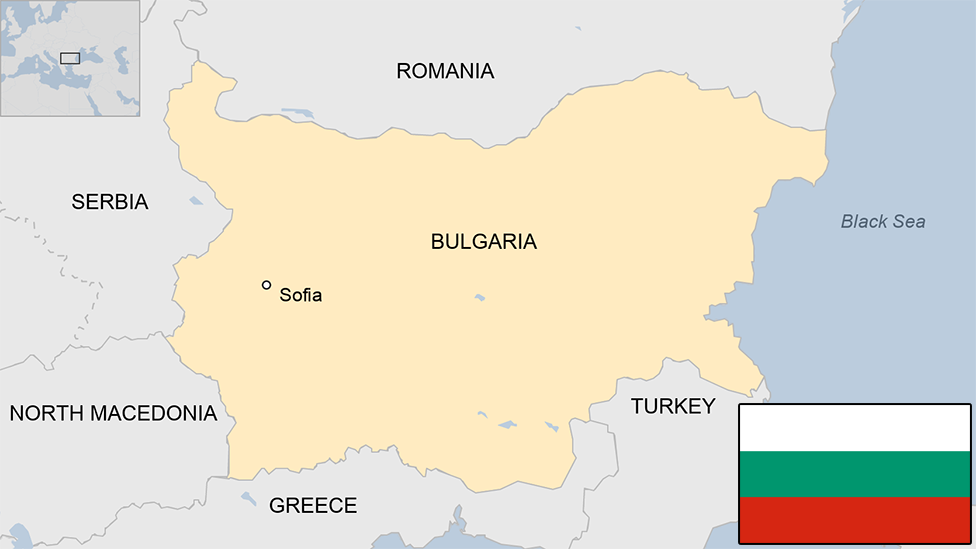
- Published18 December 2024
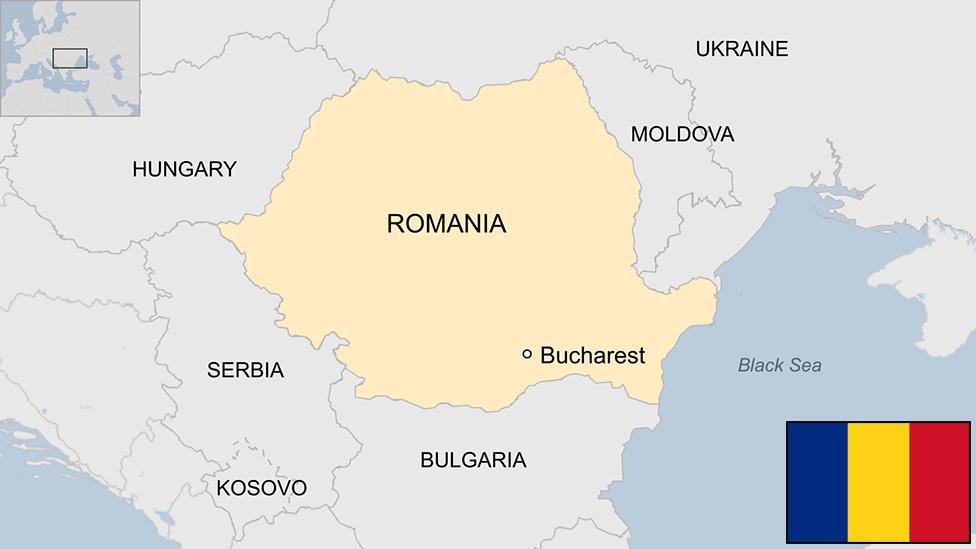
- Published25 October 2024

- Published27 January
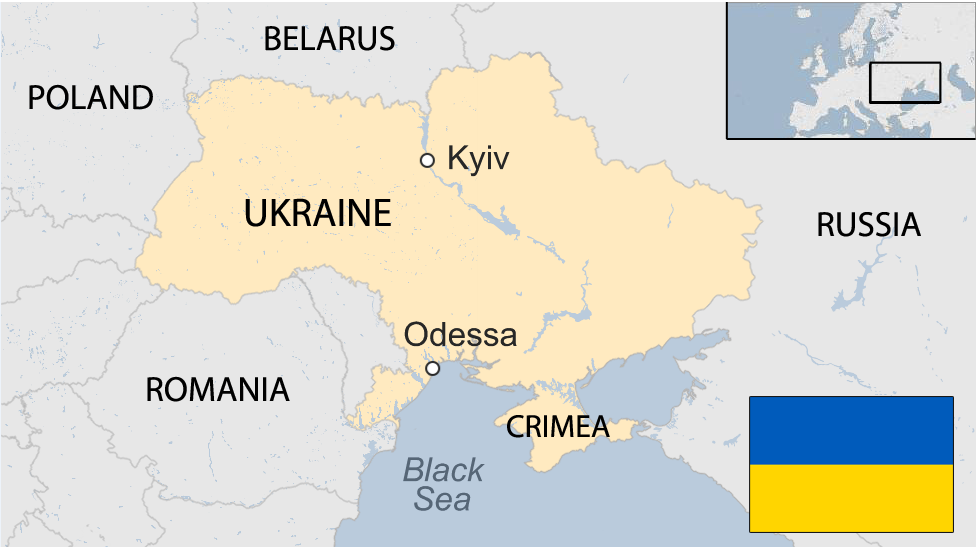
- Published25 March 2024
